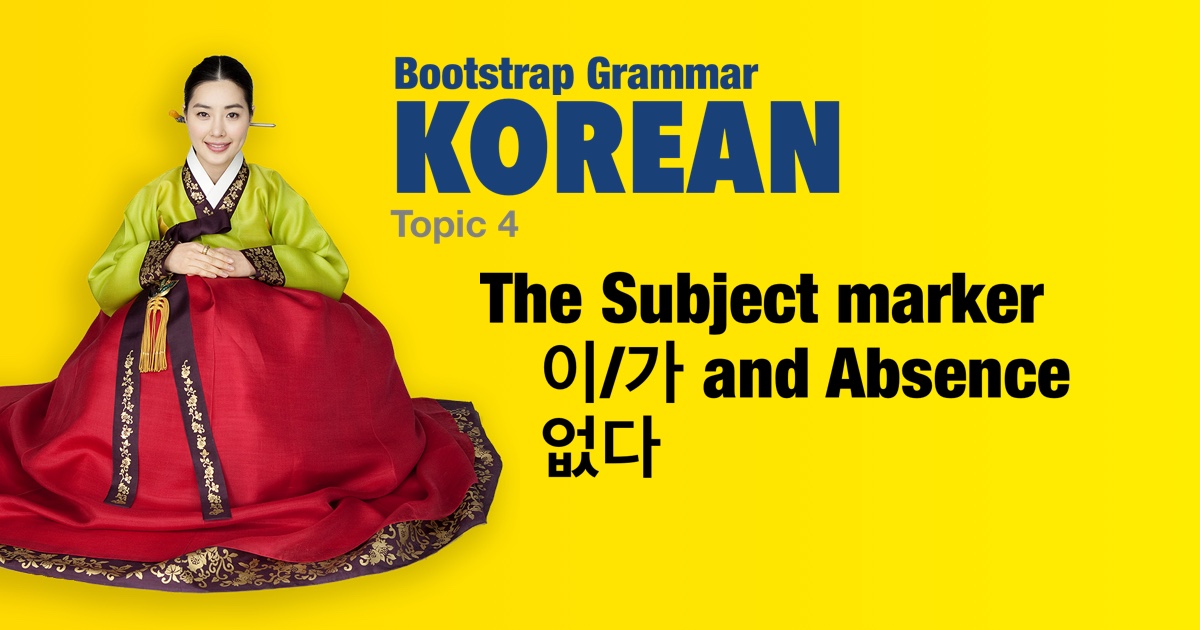Korean grammar - The Subject marker 이/가 and Absence 없다 |
|||
|
|||
Pattern: Subject + 이/가 and 없다 The verb 없다 is used to express absence: 'to not have'. Or non-existence: 'to not exist' or 'there isn't'. It can be thought of as the opposite of 있다 (to exist, to have) • In the present tense 없다 becomes 없어요. The thing that 없다 designates as 'not possessed' or 'not existing' is marked with the Subject marker 이/가. In all these examples where there is only an object and the verb, it is unclear whether the examples mean 'the object doesn’t exist' or '<someone> doesn't have the object'. This must come from the context. Also the number is ambiguous - whether 'I don't have one chair' (singular), or 'I don't have a number of chairs' (plural) is ambiguous in these examples. -- Both of these issues will be solved in later topics. |
| Examples: | |
|
의자가 없어요.
There are no chairs. / (I) don't have a chair.
|
|
|
돈이 없어요.
(I) don’t have money. / There is no money. |
|
|
물이 없어요.
There is no water. / (I) don’t have water.
|
|
|
동생이 없어요?
Don't (you) have younger siblings?
|
|
|
여자 친구가 없어요.
(I) don't have a girlfriend.
|
|
|
과일이 없어요.
There is no fruit. / (I) don't have fruit.
|
|
|
고기가 없어요.
There is no meat. / (I) don't have meat.
|
|
|
지우개가 없어요.
There is no eraser. / (I) don't have an eraser.
|
|
|
기운이 없어요?
Don't (you) have (any) energy?
|
|
|
누나가 없어요.
(I) don't have a (male's) older sister.
|
|
|
우산이 없어요.
(I) don't have an umbrella. / This is no umbrella. |
|
|
책이 없어요.
There is no book. / (I) don't have a book. |
|
|
애가 없어요.
(I) don't have kids. / There are no kids.
|
|
|
시간이 없어요.
(I) don't have time. / There is no time.
|
|
 |
|


 The subject could also be 'he doesn't have..' or 'she doesn't have..' etc. If the subject of the verb is absent,it should be clear from the context of the discussion.
The subject could also be 'he doesn't have..' or 'she doesn't have..' etc. If the subject of the verb is absent,it should be clear from the context of the discussion.
